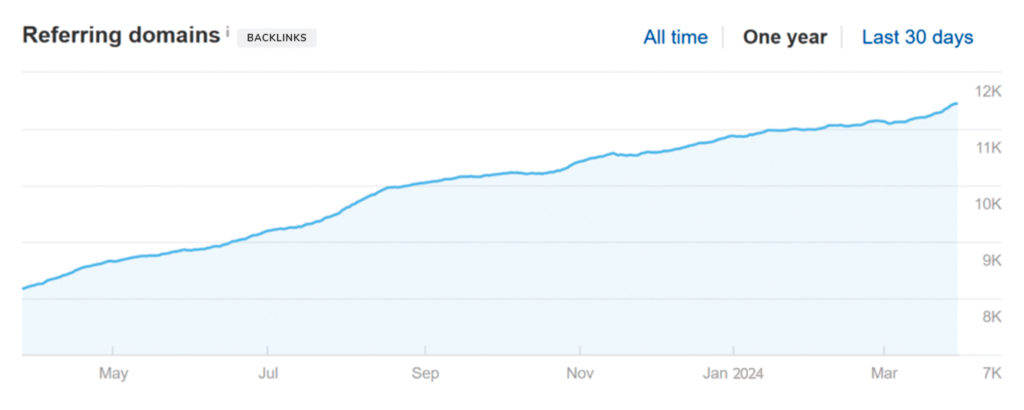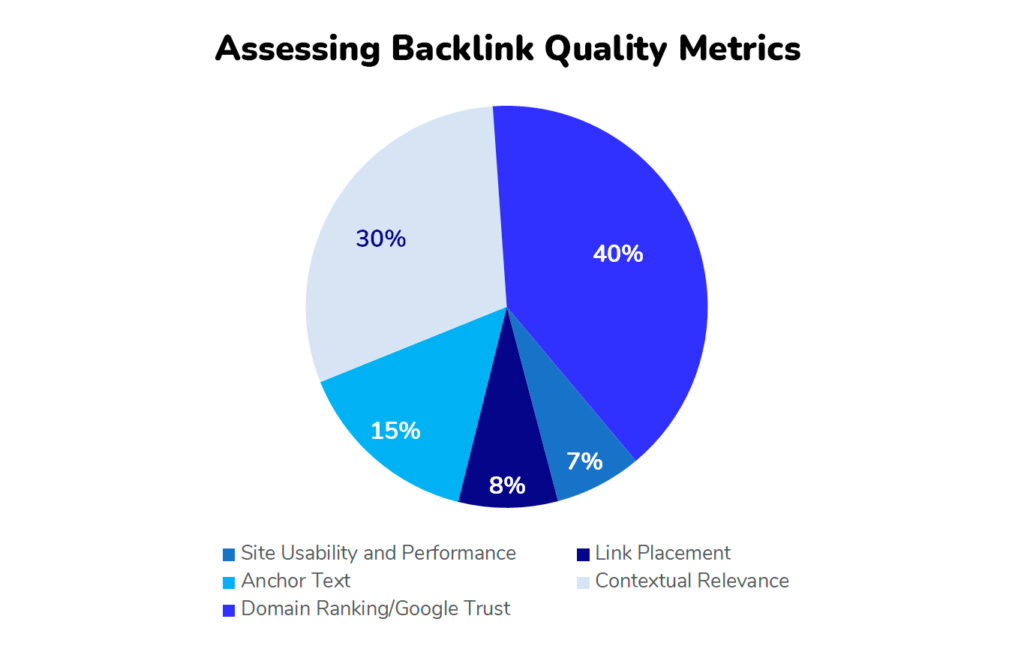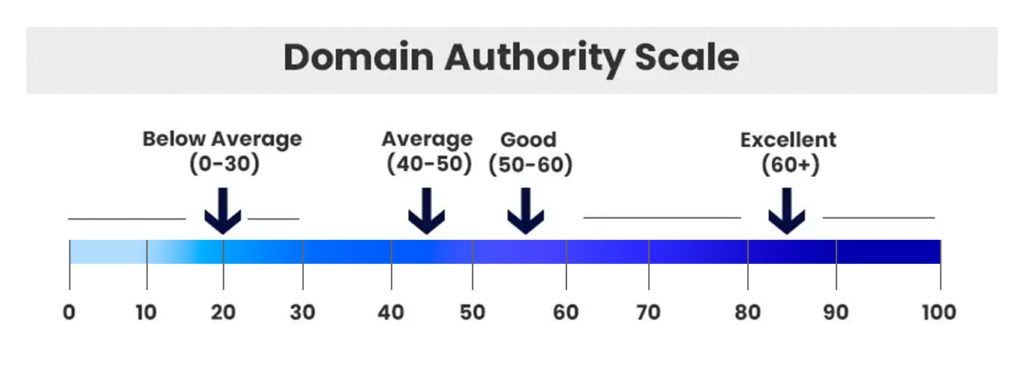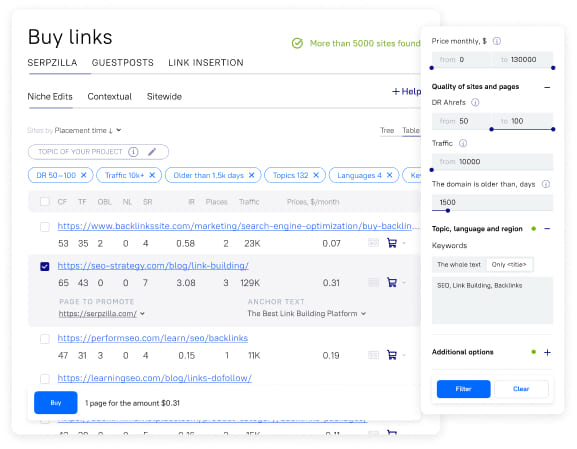If you want your website up there on the first page of Google, you’d need to build a network of good backlinks from other websites. Such a network will raise your site in search engine rankings.
Now, where to get the best backlinks? They come from the home pages of authoritative sites. And not just any sites – you’d need ones that are relevant to your niche. If you sell apples, you’d want a backlink from a site that talks about orchards, apple pies, or healthy diets, not one that talks about deep space or politics. Irrelevant backlinks often mean penalties from search engines. If your site is getting more good backlinks, it usually gets a SERP boost because it shows its popularity is increasing.

The backlinks will act as votes of confidence from other sites. They will make your site look more authoritative which is what SEO is all about. As everyone knows, the higher the rank of a site, the more visitors come to its home page. To get the desired results, you need to know, how to get good backlinks and which ones to avoid. It is useful to learn special tools for measuring backlinks data and know the criteria for site selection.
Understanding Homepage Backlinks
Homepage backlinks are links from the main page of a website to your site. Why are they valuable? Because the homepage usually has the highest authority of any page on a site.
These types of links are also likely to generate significant referral traffic due to the homepage’s prominent position.

Where and How to Get Homepage Backlinks
There are various strategies to get good homepage backlinks. Here are some effective methods:
1. Guest Blogging
Guest blogging is writing articles for other websites. These sites usually allow you to include a link to your website as a “thank you” for your content. The main task is to provide relevant and well-written content that would be interesting for the host site’s audience. Guest blogging generates natural backlinks, and it helps you tap into an already-established audience.
2. Content Marketing
Again, you’ll need exceptional content that other sites will want to link to. This includes, just for example, comprehensive guides, original research, infographics, and interactive tools. Promote this content through news outlets, social media, and industry forums, and if it is really good, you’ll naturally attract backlinks from the best homepages.
Tip: Organize a discussion. It always leads to a lot of shares and engagement, and – ta-da! – organic backlinks.
3. Public Relations (PR) Campaigns
Effective PR campaigns can result in mentions and links from high-authority homepages. How to do it?
Talk to journalists.
Distribute press releases.
Organize press tours and press lunches.
Use platforms like HARO (Help a Reporter Out) to get featured in news articles and blogs.
Get as much media coverage as you can!
4. Relationship Building
One word: influencers!
Building relationships with influencers and webmasters helps generate natural backlinks. Engage with them on social media, participate in discussions, and offer them to collaborate on content creation!
Such things usually need a long-term strategy. But it can bring in organic backlinks which Google is so fond about.
5. Sponsorships and Partnerships
It is a good idea to sponsor events, webinars, or content on high-authority sites. Just make sure that they are relevant to your niche. A link to the sponsor’s homepage here, a mention of the sponsor there… and your site’s visibility improves tremendously.
Sponsorships can also improve your brand’s reputation within your industry. Your grateful audience will generate backlinks without additional efforts on your side. And if you give away small souvenirs for the bloggers to remember you by, who would judge you?
6. Resource Link Building
Create valuable resources: make industry reports, comprehensive guides, and other useful tools. Promote them to relevant sites. This method generates natural backlinks, as webmasters are always looking for high-quality resources to share with their audience.
7. Broken Link Building
There are special tools to Identify broken links on the homepages. You can do that and then offer your content as a replacement. Use tools like Ahrefs or Broken Link Checker to find these opportunities. After that, you can reach out to webmasters with your offer. This strategy usually helps get good backlinks for SEO.
How to Choose Websites to Get Backlinks from Homepages
It is important to select the right websites to acquire homepage backlinks from. Here are key criteria to consider:
1. Relevance
Relevance is the key! It helps maintain the natural context of the backlink – and makes it a way more effective SEO tool.
2. Domain Authority
You’d need to evaluate the domain authority (DA) of websites. It can be done using tools like Moz, Ahrefs, or SEMrush. Remember: higher DA sites pass on more link equity. It is a good practice to aim for backlinks from sites with a DA higher than your own.

3. Traffic Metrics
Use tools like SimilarWeb or Google Analytics to assess a site’s traffic levels. Sites with high organic traffic can drive substantial referral traffic to your site, which is what you are looking for.
4. Link Profile Quality
Examine the link profile of the websites. Avoid sites with many spammy or low-quality backlinks. Use tools like Majestic’s Trust Flow or Citation Flow to evaluate the quality of a site’s backlinks.
5. Engagement and Social Signals
Sites with high engagement rates and a strong social media presence indicate an active audience. Such sites are more likely to provide quality referral traffic. They will also increase the audience’s trust in your own website. Shares, likes, and other social signals are becoming increasingly important SEO factors.
Tools to Get and Analyze Backlinks
Look carefully at these popular SEO tools. You don’t need all of them, of course – pick a couple and use others occasionally.
1. Ahrefs
It is a comprehensive SEO tool that allows you to explore competitor backlinks, identify linking domains, and find broken links.

2. Moz
Moz also provides tools for link analysis, including Link Explorer. The latter helps to discover link-building opportunities and track your site’s profile. There also is the Domain Authority metric, which is useful for assessing the quality of potential linking sites. Moz has a user-friendly interface and at the same time in-depth analytics. It is a good choice for both beginners and experienced SEO professionals.
3. SEMrush
SEMrush offers a suite of tools for backlink analysis, including the Backlink Analytics and Backlink Audit tools. It also helps you to understand the SEO factors that influence your site’s rankings.
4. Majestic
Majestic is known for its Trust Flow and Citation Flow metrics. Its detailed backlink data and historical index are adored by those who want to understand long-term trends and the impact of your link-building efforts.

5. Google Search Console
Google Search Console shows how search engines view your site and how to improve it for SEO purposes.
Types of Homepage Backlinks to Avoid
Some of the backlinks are toxic. They can harm your SEO efforts and lead to penalties. Here are the types to avoid:
1. Spammy Links
Links from spammy sites affect your ranking negatively because Google and other search machines are not stupid. They can tell a linking scheme when they see one. Do you really want to associate with a low-quality site that contains a lot of irrelevant content and genuinely irritates users? Obviously, you should avoid them at all costs!
2. Link Farms
Link farms are networks of websites created solely for link building. Search engines can easily identify these schemes. Using them leads to penalties.
3. Irrelevant Links
Backlinks from sites that are not relevant to your industry can dilute your profile. They give little value and confuse search engines. They damage the overall quality of your profile.
4. Over-Optimized Anchor Text
Using exact-match anchor text excessively can appear manipulative to search engines. It is always better to aim for a natural mix of anchor texts, including branded, generic, and long-tail keywords. Over-optimization can trigger penalties and negatively affect your site’s SEO factors.
5. Paid Links
Buying links is against Google’s guidelines and can lead to severe penalties. Paid links often lack the natural context that good backlinks should have. It can work once, but it’s a risky strategy for long-term SEO.
6. Reciprocal Links
Excessive reciprocal linking (link exchanges) can be seen as an attempt to manipulate rankings. Occasional link exchanges are acceptable, but avoid engaging in widespread reciprocal linking schemes.
Boost your SEO results! Link building has become fast and easy with Serpzilla. Buy quality backlinks on authority websites with high DR.

Conclusion
Obtaining backlinks to your homepage can greatly improve the ranking of your site, but it must be approached with care. By choosing quality sites and utilizing honest methods, you will be able to build truly useful links. Avoid toxic backlinks, and you’ll build your website’s authority.





